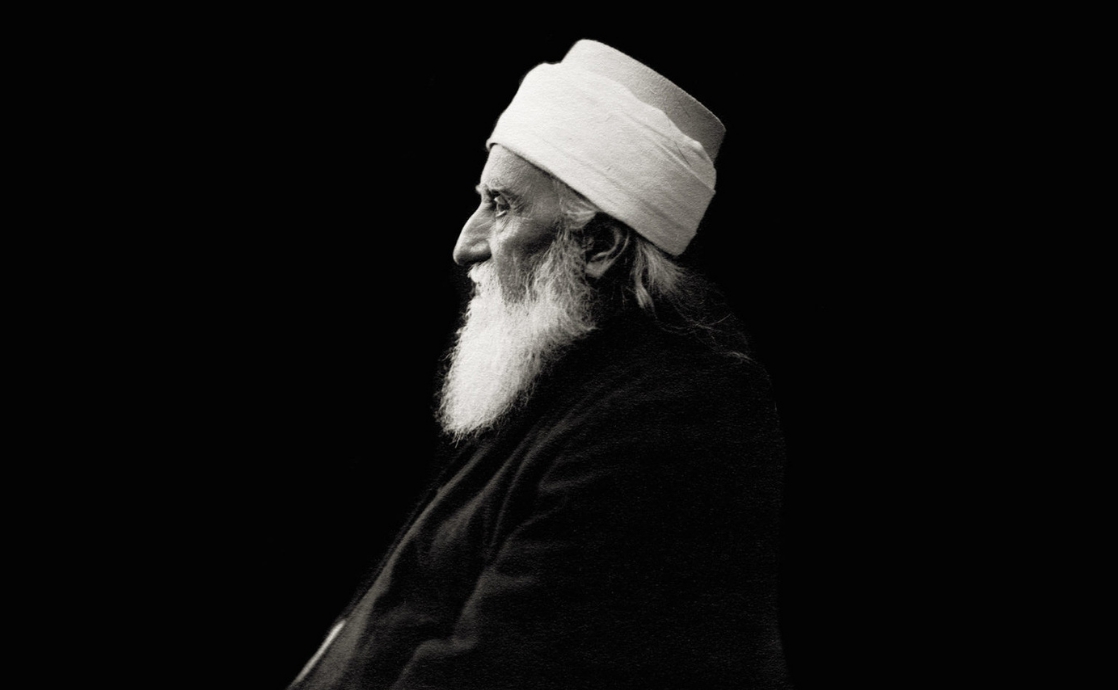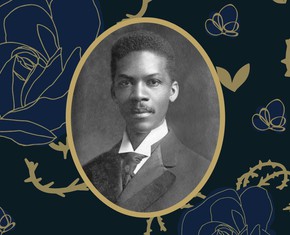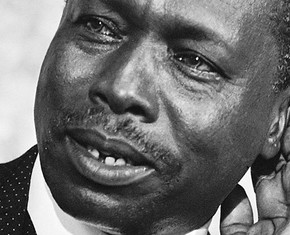The views expressed in our content reflect individual perspectives and do not represent the authoritative views of the Baha'i Faith.
Tonight Baha’is observe the anniversary of the passing of Abdu’l-Baha, who ascended to the next world more than a hundred years ago – and left the world a legacy of universal love.

In those observances, which will take place sequentially at 1:00 a.m. in each time zone as the planet spins on its axis, the world’s Baha’is will unitedly recognize Abdu’l-Baha’s life of great service and devotion to the Baha’i ideals of peace, love, and unity. For the span of an entire 24-hour day, Baha’is everywhere will pray together, read from Abdu’l-Baha’s writings, and commemorate his unprecedented promulgation of peace.
RELATED: What If We All Had a Kind, Loving Father?
What can cause this kind of global devotion?
Simply, Abdu’l-Baha lived to love and serve others. In an informal talk to a group of college students recorded in the Baha’i magazine Star of the West, he defined what any person’s loving legacy might look like — inadvertently describing his own:
Man must so live that he may become beloved in the sight of God, beloved in the estimation of the righteous ones and beloved and praised by the people. When he reaches this station the feast of eternal happiness is spread before him. His heart is serene and composed because he finds himself accepted at the threshold of His Highness, the One. His soul is in the utmost felicity and bliss even if he be surrounded by mountains of tests and difficulties. He will be like unto a sea on the surface of which one may see huge white waves, but in its deeps it is calm, unruffled and undisturbed. If he trusts his happiness to worldly objects and fluctuating conditions he is doomed to disappointment. Should he gain a fortune and anchor his happiness to that he may hypnotize himself into a state of so-called joy for a few days, and then that very fortune will become a mill-stone around his neck, the cause of his worry and melancholy.
But if he lives in accordance with the good-pleasure of the Lord he will be favoured at the court of the Almighty. He will be drawn nigh unto the throne of Majesty. He will be respected by all mankind and loved and honoured by the believers. This fortune bestows eternal happiness. The tree of this fortune is ever green. The autumnal wind does not sear its leaves nor does the frost of winter rob it of its perennial freshness. This is a happiness which is not followed by any misery but is always a source of gratefulness and blessedness. The most great, peerless gift of God to the world of humanity is happiness born of love …
At the age of 77, on November 28, 1921, the leader of the Baha’i community, born Abbas Effendi and fondly called “The Master;” the son of Baha’u’llah, the prophet and founder of the Baha’i Faith, and the Center of his Covenant; dearly loved and revered around the world for his service to humanity and his advocacy for peace and unity; knighted by the British Empire for his work feeding the poor and averting famine in Palestine during World War I; drew his final breath and passed into the next world.
Abdu’l-Baha, a prisoner and an exile for most of his life, never let his imprisonment compromise his joy, his love, or his service to humanity.

His passing unleashed a torrent of profound distress and grief, not just for the Baha’is around the world but for everyone who knew him or knew of him. People from every religion and no religion deeply mourned. Abdu’l-Baha’s funeral service brought together even the divided Holy Land, drawing admirers from every race, religion, age, background, class, and walk of life. A great sense of loss and grief gripped those who attended, and its intensity united them. In the Holy Land, Abdu’l-Baha’s unprecedented impact, and the outpouring of emotion that accompanied it, resulted in an unparalleled funeral.
RELATED: The True Example of How to Live a Spiritual Life
Abdu’l-Baha was memorialized and laid to rest on Tuesday, November 29th, 1921 on the slope of Mount Carmel in Haifa, Palestine. Thousands upon thousands of people walked up the steep mountainside, “A great throng,” the British High Commissioner of Palestine wrote, “had gathered together, sorrowing for His death, but rejoicing also for His life.”
The Governor of Jerusalem said “I have never known a more united expression of regret and respect than was called forth by the utter simplicity of the ceremony.”
Media observers estimated that more than ten thousand people attended: Arabs, Turks, Persians, Kurds, Armenians, Europeans, Americans, Jews, Catholics, Orthodox Christians, Anglicans, Druze, Muslims, and Baha’is, government officials and clergy and the wealthiest and the poorest, all there to show their abiding respect for the man one newspaper account called “The Personification of Humanitarianism.”
Mourning, moaning, and lamenting, the huge crowd collectively felt such a deep sense of loss that many attendees struggled with their emotions. The sounds of sobbing and weeping filled the air. The mourners wept because they had lost someone so unique and so humble, so wise and selfless and dedicated to the service of others, that they feared they had lost something irreplaceable, something enormously precious, not just a man but a truly heroic and transcendent soul.
Their sorrow was understandable. Many in that gigantic crowd literally owed their lives to Abdu’l-Baha, either for the generous donations he had given the poor for decades, or for the grain he had stored to feed the starving people of Palestine during World War I, or for his long history of tending to the sick regardless of their class or creed, or for the kind spiritual counsel he gave to everyone.
If the old saying that you can judge a man by his funeral is true, then Abdu’l-Baha’s interment produced one of the most spontaneous, profound, and public outpourings of affection, warmth and tenderness the Holy Land had ever seen — and proved Abdu’l-Baha’s teaching that happiness born of love lasts forever.
















Comments
Sign in or create an account
Continue with Googleor